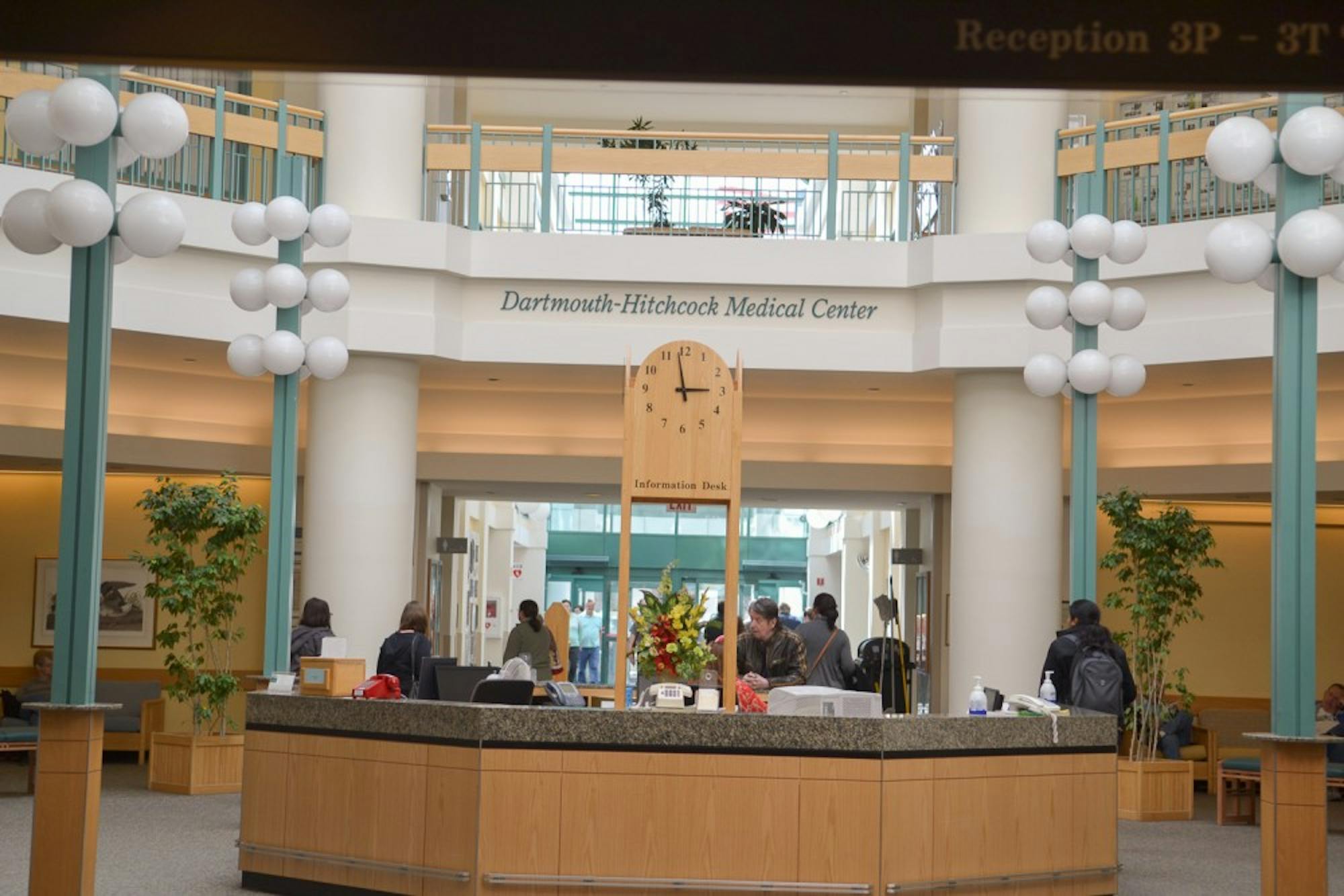If the hospital’s reimbursement rates are not adjusted, Dartmouth-Hitchcock Medical Center will take legal action against the state of Vermont. The state has paid the hospital 31 percent less in Medicaid reimbursements than hospitals located in Vermont, DHMC spokesperson Rick Adams said.
The Department of Vermont Health Access disputes DHMC’s claims, although it plans to review the reimbursement increase, according to a response letter sent to DHMC on Sept. 10.
DHMC accepts patients covered by Medicaid in exchange for reimbursement by state and federal funds. DHMC is the second-largest Medicaid health provider to Vermont residents, even though it is located in Lebanon, New Hampshire — 40 percent of its patients live in Vermont, Adams said. The hospital claims that it is reimbursed at a lower rate for equivalent treatments as Vermont hospitals. As a result, the hospital believes DHVA has violated the equal protection clause in the 14th amendment.
The total amount of money in dispute is about $11 million, Adams said. Dartmouth-Hitchcock loses $40 million per year in uncompensated care costs for Vermont Medicaid enrollees, partially due to Medicaid underpayment compared to Vermont hospitals, he said.
In a letter dated Aug. 6 and addressed to DHVA commissioner Steven Constantino, DHMC chief legal officer and general counsel John Kacavas wrote that Vermont has forced DHMC to bear an unequal portion of the cost of Medicaid patients.
“Until now, [DHMC] has served Vermont Medicaid patients at these discriminatory rates in relative quietude,” Kavacas wrote in the letter. “While we remain hopeful for, and open to, a negotiated disposition of this dispute, we are prepared to seek redress in court because these underpayments are unlawful and unconstitutional.”
In DHMC’s letter, Kacavas wrote that previous DHMC inquiries have only received “half-measures and empty promises.” In 2008, Vermont “marginally” increased the base Medicaid rate for DHMC, which decreased the rate differential between DHMC and Vermont hospitals to around 10 percent, according to the letter.
The DVHA sent a response letter addressed to Kacavas on Sept. 10, Vermont Health Connect Operations outreach director Sean Sheehan said. The letter is signed by DVHA general counsel Howard Pallotta.
Pallotta wrote that the DVHA will review the assertions and responded to the “threat of litigation” by supporting the constitutionality of Vermont’s higher Medicaid rates for DHMC.
“The law [DHMC] cites throughout your letter gives a false impression about the ability of your hospital to sue Vermont regarding rates,” he wrote.
Pallotta countered DHMC’s case law by furnishing several court cases, including one in which DHMC itself appears. In one case, Pallotta notes that DHMC sued the state of New Hampshire regarding a rate decrease for inpatient and outpatient services, but the federal government ultimately approved the state’s rates.
That case does not settle the in-state discrimination claim, but it suggests rate decreases have been approved in the past.
Pallotta also writes that DHMC receives superior rates than other hospitals outside Vermont.
“Perhaps that makes no difference to your client, but it does not support your discrimination claim,” he wrote.
Adams said the DVHA letter offers no resolution, and that DHMC is prepared to file suit if the problem cannot be solved. The letter is the culmination of conversations between DHMC and the DVHA that have been unsuccessful, Adams said.
“It became clear by mid-summer that no administrative or legislative solution to this disparity was seen,” he said.
Sheehan said that the next step in the dispute is for DHMC to respond to the DVHA letter.
Vermont Law School professor Tracy Bach said that if the DVHA had actually chosen to pay DHMC a lower Medicaid rate than Vermont hospitals, it would be “striking.”
“I can’t see a good rationale for why they would pay DHMC less,” she said. “All hospitals should be reimbursed the same way.”
She said lower level, “informal” disputes over Medicaid rates between individuals or smaller providers and the state are common, though it is relatively rare that a large entity would sue the state. It is likely that DHMC and Vermont will come to an agreement before the lawsuit is filed, she said.
Bach said if DHMC takes legal action, she believes it is likely Vermont will lose because she does not see any legal basis for giving the hospital a different Medicaid rate.
Health policy consultancy Policy Integrity founder Steve Kappel said that compared to other states, Vermont has relatively high Medicaid reimbursement rates. This reflects a state government decision to allocate more resources to the Medicaid program, which allows for both higher reimbursement rates for healthcare providers and a larger variety of eligibility and benefits, he said.
Kappel added that many still believe that Vermont’s Medicaid reimbursement rates are inadequate.
One element that distinguishes public health insurance programs from private insurers is that public programs can unilaterally set reimbursement rates without having to negotiate with providers, Kappel said. Public payers like Medicaid and Medicare, the federal health insurance program for the elderly, have long been struggling with how to determine appropriate reimbursement rates, he said.
In general, state Medicaid programs reimburse less than Medicare and private insurance, Bach said.




